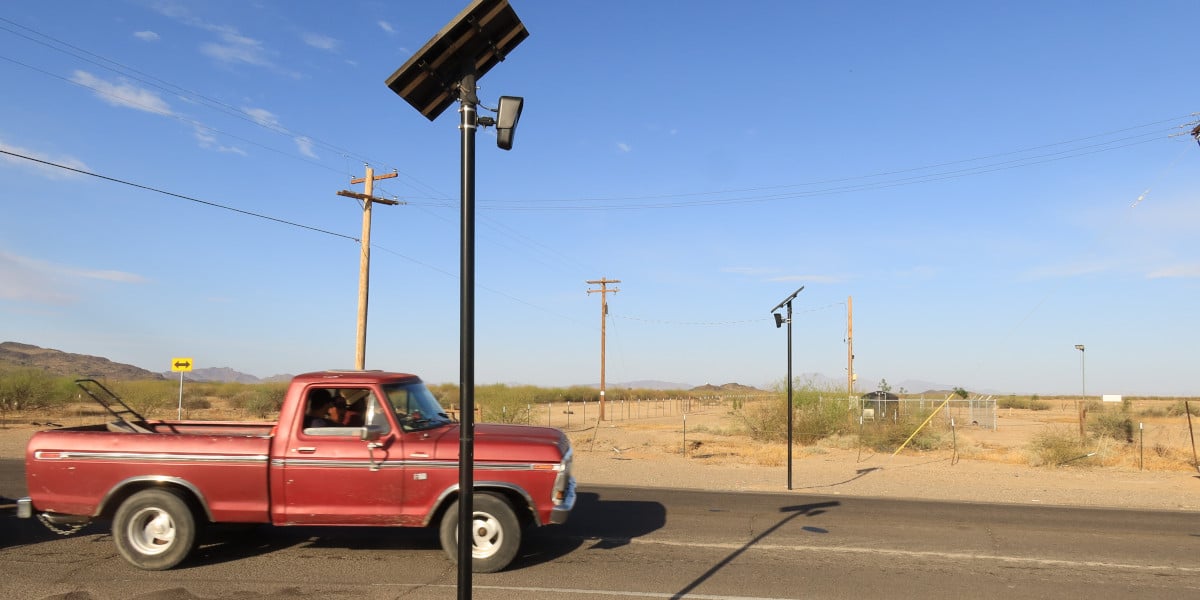Here’s the translation into American English:
—
Recent statements from Flock Safety, a company dedicated to surveillance, have sparked intense debate around the use of data and privacy concerns. The company has publicly addressed privacy violations in Illinois and defended its national surveillance network, exposing a troubling pattern: in the face of evidence of abuse, Flock Safety has blamed the users, downplaying the harm and strengthening the systems that allowed these violations.
Last month, a report by 404 Media revealed that a sheriff’s office in Texas used data from over 83,000 automatic license plate readers to track a woman suspected of self-managing an abortion. This highlights that Flock could have avoided this situation had they taken action after being warned of the risk three years ago. The company claims the media coverage of this case is “intentionally misleading,” asserting that the woman in question was sought out by her family as a missing person. However, this defense sidesteps the central issue: authorities used a national surveillance network to locate an individual, justifying their actions based on personal health decisions.
Flock has also faced criticism for allowing its network of license plate readers to facilitate mass deportations. Although U.S. Immigration and Customs Enforcement (ICE) does not have a formal agreement with the company, public records show over 4,000 investigations conducted by local police in collaboration with federal agencies. The lack of oversight and informal agreements allows federal agencies to access this surveillance network without facing the legal checks that would be required in a formal contract.
The company insists that responsibility lies with each local law enforcement agency while advocating for data sharing, arguing that it is essential for investigations. This dual narrative highlights the risk of these networks being misused to target abortion seekers or immigrants, as the justifications for accessing this data tend to be vague.
Since its founding in 2017, Flock has grown considerably, reaching a valuation of $7.5 billion, allowing agencies to establish their own usage policies. This has facilitated the widespread deployment of its surveillance technology at a low cost. Recently, Flock launched its Business Network, promoting unregulated data sharing among clients in the private security sector, claiming that the network benefiting law enforcement can also apply to the private sector.
The company continues to expand its surveillance network, employing an approach that has necessitated retraining thousands of officers in Illinois to avoid violations of state law. Flock advocates for inter-agency sharing as a method of collaboration, but this introduces uncontrollable risks since privacy and security policies vary significantly across different jurisdictions.
License plate reader systems are vulnerable to both technical exploitation and human manipulation. When these databases are compromised, the consequences can be severe, including harassment and extortion. Flock, by operating as a single point of failure, jeopardizes the privacy of millions of Americans.
Despite growing concerns about privacy and security, Flock’s promises of updates lack significant reforms. Communities such as Austin, Denver, and San Diego are beginning to push back against this surveillance infrastructure, evaluating the benefits of a system that has proven minimally effective compared to the potential for it to be used against vulnerable citizens.
Given the scope and lack of regulation of automatic license plate reading networks, the only update that could truly protect the rights and security of individuals is the total dismantling of these networks. The pressure to dismantle these surveillance systems is increasing, and it is crucial to continue in this direction.
—
Let me know if you need any further adjustments!
Referrer: MiMub in Spanish











